- How Much Weight Can You Realistically Lose in 3 Months? - January 14, 2024
- How To Lose 1kg a Week (Guaranteed) - August 20, 2023
- How To Count Calories (or Estimate) and Stay on Track When Eating Out at Restaurants - July 25, 2023
TLDR; Stravation Mode is real, but not in the way most people think of it.
As most (good) dieticians will tell you, there is a grain of truth to the ‘Starvation Mode’ theory which theorizes that if you start dieting, i.e. eating fewer calories than normal, your body will notice and lower your metabolism and cause ‘metabolic damage’ meaning you can’t lose any more weight.
This simply isn’t true.
While your basal metabolic rate will decrease as you lose weight, it won’t do so to a degree where you’ll stop losing weight completely.
People also seem to believe that when you’re in this mythical ‘starvation’ mode, anything you eat will be stored as fat.
Also not true.
To give you an idea of how ridiculous ‘starvation mode’ actually is imagine this hypothetical scenario;
You dropped in the middle of the desert with water but no food. You can’t find or buy any food, no one is going to bring you any food. Ever.
What do you think will happen
a) You’ll eventually starve to death
b) You’ll suddenly go into ‘starvation mode’, stop burning calories, gain loads of fat and somehow survive the rest of your life as an obese person getting fatter and fatter while eating nothing.
Hint: the answer is a.
That thought experiment alone should be enough to convince you that starvation mode isn’t a thing, but there is a grain of truth in this theory, and it all comes down to metabolism.
WHAT ACTUALLY HAPPENS; METABOLIC ADAPTATION
Many people mistakenly think that overweight people have slow metabolisms, and that their ‘slow’ metabolism the root cause of the fact that they’re overweight.
In fact, the exact opposite is true.
Generally speaking, the more you weigh, the higher your metabolism will be. Of course, metabolism is determined by many different factors outside of our control such as age and gender, but if you took two identical humans that weighed different amounts, the heavier person would have the higher metabolism.
Why?
It’s pretty simple if you think about it.
The more weight you carry, the more energy your body has to expend moving that mass around and just generally keeping you alive.
It takes more energy to move your body from A to B if you weigh 100kg than it does if you weight 60kg.
How much does weight affect metabolism?
It’s difficult to know exactly as there are other factors which we can’t account for that will play a part, but let’s take a look at a theoretical example (the below figures are calculated using the Harris-Benedict equation)

As we can see, these people are identical (both 40 year old, 180cm males) aside from their weight.
The guy weighing 100kg, let’s call him Phil, burns 2840 calories each day, while the one weighing 50kg more, his name is Ian (because that’s what 40 year old guys are called right?), burns 3760 – roughly a 900 calorie difference.
So, that means if Ian lost 50kg of weight, he’d need to be eating significantly fewer calories AT that weight (900 if we use this example) to maintain his weight.
Let’s see how this looks visually over time if Ian was on a diet and gradually losing weight.
| Month | Weight (Kg) | Metabolism (TDEE) |
| Jan 2021 | 150 | 3760 |
| Feb 2021 | 145 | 3668 |
| Mar 2021 | 139 | 3558 |
| Apr 2021 | 132 | 3429 |
| May 2021 | 126 | 3318 |
| Jun 2021 | 118 | 3171 |
| Jul 2021 | 111 | 3042 |
| Aug 2021 | 109 | 3005 |
| Sep 2021 | 107 | 2968 |
| Oct 2021 | 107 | 2968 |
| Nov 2021 | 103 | 2894 |
| Dec 2021 | 100 | 2839 |
So, as you eat less and lose weight, your body burns fewer calories, and in order to maintain the weight loss, you’ll need to eat fewer and fewer calories to ensure you maintain a calorie deficit and keep losing weight; this is called metabolic adaptation.
In this example, for every Kg Ian loses, his metabolism slows by 18 calories, this is in contrast to the findings of this meta analysis which showed that on average, participants’ metabolisms slowed by 12 calories for every Kg they lost;
“the mean rate of resting EE decrease relative to weight loss was calculated from 90 available publications. A decrease of resting EE relative to weight loss of -15.4 +/- 8.7 kcal kg(-1) was observed from 2977 [corrected] subjects“
The actual your amount your metabolism decreases by will vary from person to person, and is likely, not linear, i.e. it might decrease by 10 calories when you go from 81kg to 80kg, then 20 calories when you go from 80kg to 79kg.
This clinical trial suggest that;
“Maintenance of a 10% or greater reduction in body weight in lean or obese individuals is accompanied by an approximate 20%-25% decline in 24-hour energy expenditure”
this would mean that if someone weighed 150kg and lost 15kg, their basal metabolic rate might drop from 3760 to around 3384.
All of this tells us that If you don’t continue to be in a calorie deficit, your weight loss will plateau.
This may be where the ‘starvation mode’ myth originally came from, i.e. the theory that your body will actively prevent you from losing weight (and even ‘make’ you gain weight) if detects a reduction in calories.
As we can see from the examples above, this isn’t true, but what is true is that as you lose weight, you will need to keep lowering your calories (or expend more calories, or both) if you want to lose more weight
WHAT DO PEOPLE THINK STARVATION MODE IS?
It’s difficult to know exactly what people think this made-up phenomenon is, but it seems that people believe the body reacts to a reduction in calories In all kinds of different ways….
It literally does though. Every BMI needs a certain amount per day and doing otherwise will send your stomach into starvation mode and it will shrink. Don’t be afraid of calories, just be conscious of where they come from.
— kp (@chizzlefohtwen) January 10, 2021
This person even thinks it causes your stomach to shrink.
The accuracy… Starvation mode does horrors to your body.
— ????????Hoeing 747, the Brat???????? (@ginfueledbrat) January 7, 2021
Our other misinformed friend seems to think that throwing up is a symptom of starvation mode.
The overall theme is that people seem to think ‘starvation mode’ halts weight loss, and can even cause weight gain.
If the body receives fewer calories than it needs to function, it will use stored fat to provide energy to fuel those functions.
This simply isn’t possible if you’re in a calorie deficit.
This means weight reducing, not increasing.
As stated above, if starvation mode actually existed then famine wouldn’t be a problem.
WHAT DOES THE SCIENCE SAY?
We can’t truly interrogate this starvation mode myth without exploring the science.
Although the prevailing opinion accepts some reduction in resting metabolic rate with weight loss, this 2018 study showed that the resting metabolic rates of people that had lost weight and then maintained that new low weight did not have significantly lower metabolic rates than a control group.
HOW MANY CALORIES IS STARVATION MODE?
Because starvation mode doesn’t exist, there is no specific amount of calories that causes it.
This is a common misconception that still does the rounds on Twitter in 2021…
Dont go too low cal otherwise your body switches to starvation mode; sorry if you have read this already but aiming for about 1200-1500 Cals per day with a bit of exercise will make it far more sustainable in the longer term..
— Toby Anscombe (@TobyAnscombe) January 10, 2021
This chap clearly thinks starvation mode kicks in when you eat less than 1200 calories per day.
You won’t be surprised to hear this isn’t true.
What does happen, however, is that weight loss gets more difficult as you get lighter and lighter.
Let’s go back to the Ian example.
If Ian weighs 150kg and maintains his weight on 3760 calories, this means that he can cut his calories by 20% (a reduction 752 calories) and still be eating 3008 calories per day – that reduction would help him lose a LOT of weight, AND he’s still able to eat a LOT of food, win win!
This wouldn’t be so simple for a very light female however.
Let’s take Jen.
Jen is a 35 year-old female weighing 55kg.
IMAGE
This means her metabolism (TDEE) is 1788 calories.
If she were to cut 20% of THAT, we’re looking at a very different picture – that only leaves Jen with 1430 calories to eat per day to acheive the same rate of weight loss as Phil.
Doable, but much more difficult.
The point is, there will be a stage whereby it becomes tricky to keep losing more weight because you can’t simply reduce your calories to zero.
The lighter you get, the more difficult it becomes to lose more weight.
This could be why people believe that starvation mode ‘kicks in’ at a daily intake 1,000 calories for example.
HOW TO PREVENT STARVATION MODE AND METABOLIC SLOWDOWN
Although stopping your metabolism slowing as you lose weight is impossible, there are some things you can do to minimise the impact.
- Eating More Protein
Anyone wanting to build or maintain muscle mass should be looking to get in a minimum 1.2g of protein per Kg of bodyweight regardless of whether they’re losing or gaining weight.
The benefit of an increased protein intake however independent of muscle mass, is that the body burns MORE energy digesting protein that it does carbs or fats.
This means the more protein you eat, the higher your metabolism will be.
2. Resistance Training
Resistance training (training with heavy weights) also helps to maintain and build muscle mass. The advantage of having more muscle mass is that muscle tissue is more metabolically active than fat, i.e. it burns more calories at rest.
This means the more muscle mass you have, the more calories you’ll burn, even when you’re sitting around doing nothing.
More muscle mass will of course make you look better too.
DOES EATING MORE ‘BOOST’ YOUR METABOLISM?
No. if you’ve heard of the ‘starvation mode’ myth you probably also aware of another myth circulating that says an acute increase in calories, or a cheat meal, can speed up your metabolism.
This simply isn’t true. If you’re trying to lose weight, and you have a cheat meal that pushes you into a calorie surplus, the weight loss will stop, or you could even end up gaining weight.
Now, there might be a grain of truth in this theory that relates back to the fact that a prolonged, continual reduction in weight could cause adaptive thermogenesis (a lower metabolism). There are measures that can be taken to prevent this.
A temporary diet break could prevent or decrease the effect of adaptive thermogenesis; a diet break is essentially a planed period of time mid-way through a diet where the dieter will revert back to maintenance calories (or at least perceived maintenance) with the goal of arresting any decline in metabolism.
IS THERE A MINIMUM AMOUNT OF CALORIES YOU SHOULD EAT FOR WEIGHT LOSS?
Following on from the starvation mode myth, many people believe that there is a minimum number of calories you can eat, and beyond that any further reduction will result in no loss (or even weight gain).
For some reason, the consensus seems to be that no one should go beyond 1200 calories.
Again, this is totally made up, the fewer calories you eat, the more weight you’ll lose and the quicker you’ll lose it. So why not just diet on as low a calorie amount as possible? 500, 400 or even 300 calories per day?!
Well, the fewer calories you eat, the more difficult it’ll be to stick to that diet. Losing weight consistently on say 1750 calories is much more sustainable in the long term than trying to eat 500 calories a day, then giving up after 3 days because you’re constantly starving.
The minimum amount of calories you should eat to lose weight really depends on your current weight and your lifestyle. If you already very light and not very active, you can afford to diet on much lower calories than someone whos’ heavier and very active. It all depends on your individual circumstances.
SUMMARY
Starvation mode does exist, but it won’t stop weight loss, it’ll just slow it down..
If it did halt weight loss completely, it wouldn’t be possible to starve to death, and no one would need to bother eating at all.
It is true that your metabolism does adapt by slowing down as you lose weight, so if you want to carry on losing weight, you need to carry on reducing your calories.
Whether you are trying to lose weight or not, it’s a great idea to get adequate protein and do some resistance training since both of these things will mitigate any metabolic slowdown.
REFERENCES
Relative changes in resting energy expenditure during weight loss: a systematic review https://pubmed.ncbi.nlm.nih.gov/19761507/
No consistent evidence of a disproportionately low resting energy expenditure in long-term successful weight-loss maintainers https://www.ncbi.nlm.nih.gov/pmc/articles/PMC6186213/
Adaptive thermogenesis in humans https://www.ncbi.nlm.nih.gov/pmc/articles/PMC3673773/

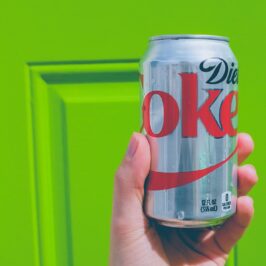
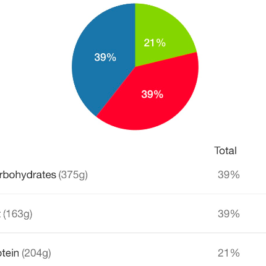
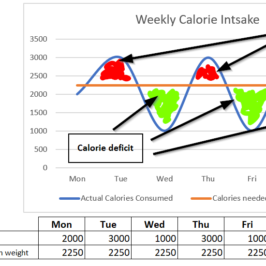
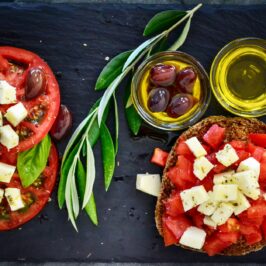
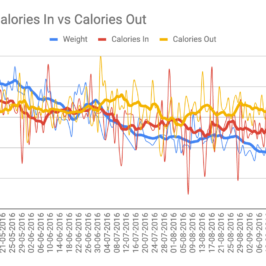

Leave a Reply